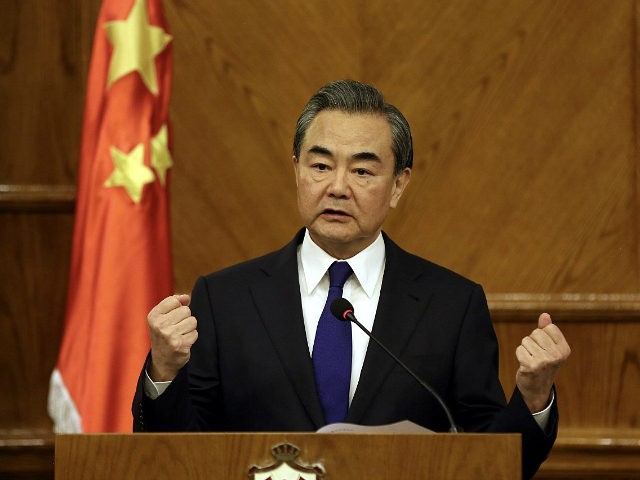A delegation representing the Taliban terror group met with Chinese Foreign Minister Wang Yi in the northern Chinese city of Tianjin on Wednesday to discuss Afghanistan’s security issues, China’s state-run Xinhua press agency reported.
Mullah Abdul Ghani Baradar led the nine-member Taliban group as its “political chief,” according to the news agency.
“China, as Afghanistan’s largest neighbor, always respects Afghanistan’s sovereignty, independence, and territorial integrity, sticks to not interfering in Afghanistan’s internal affairs and adopts the friendly policy in view of the entire Afghan people,” Wang told Baradar at Wednesday’s summit.
China’s western region of Xinjiang shares a land border with Afghanistan. Human rights organizations and foreign governments, including that of the U.S., accuse Chinese Communist Party (CCP) officials of unlawfully detaining 1-3 million Uyghurs and other ethnic minorities, such as Kazakhs and Kyrgyz people, in state-run concentration camps throughout Xinjiang since 2017. Beijing claims the camps are necessary to assimilate Uyghurs to Han Chinese culture — which is not indigenous to Xinjiang — and deter alleged terrorist activity by members of the ethnic group, particularly the East Turkestan Islamic Movement (ETIM). Uyghurs are a largely Sunni Muslim, Turkic-speaking ethnic group native to Central Asia, which borders Xinjiang to the West.
“The East Turkestan Islamic Movement (ETIM), an international terrorist group listed by the UN Security Council, poses direct threats to China’s national security and territorial integrity, and it is the common responsibility of the international community to fight against it,” Wang said at his summit with the Taliban on July 28.
The U.N. Security Council added ETIM to its list of terrorist groups in 2002. The U.S. State Department removed ETIM from its list of terror organizations in November 2020, citing a lack of evidence that the group actually exists.
“Wang called on the Afghan Taliban to draw a clear line from ETIM and other terrorist groups, and resolutely and effectively crack down on them, so as to remove obstacles and create favorable conditions for regional peace, stability and development,” according to Xinhua.
The U.N. Security Council in a July 2020 report claimed some ETIM fighters were “seeking to transit through Turkey and the Islamic Republic of Iran to the northern provinces of Afghanistan to join the ETIM affiliate there.”
Afghanistan’s security situation has deteriorated in recent weeks as U.S. and North Atlantic Treaty Organization (NATO) troops have withdrawn from the country to end a 20-year joint military operation based in Kabul. The U.S.-led War in Afghanistan launched in late 2001 with the Western ouster of the Taliban from Afghanistan’s government. The Taliban has reclaimed much of Afghanistan since the U.S. announced it would remove all military personnel from the country by August 31. The Sunni Islam-based terror group has reportedly retaken at least 85 percent of the country so far and reinstated Islamic law, or sharia, on some reconquered territories.
The Taliban’s resurgence has sparked an exodus from the country by Afghan civilians and government soldiers, who fear the terror group’s rule. Tajikistan requested assistance from the Moscow-led Collective Security Treaty Organization (CSTO) on July 7 to help secure its border, citing national security threats from Afghanistan.
“Tajik authorities say that two-thirds of the 1,357-kilometer border with Afghanistan is under Taliban control and they are preparing for an influx of refugees to enter the country. They say they are already providing Afghan refugees with food and shelter,” Radio Free Europe/Radio Liberty reported on July 7.
“Fighting in the northern part of Afghanistan prompted over 1,000 Afghan government troops [to] retreat to Tajikistan under pressure of [the] Taliban … in the early hours of July 5, after over 300 Afghan troops had retreated to Tajik territory on Saturday [July 3] and 94 others on Sunday evening [July 4],” Russia’s Interfax News Agency reported on July 5.

COMMENTS
Please let us know if you're having issues with commenting.